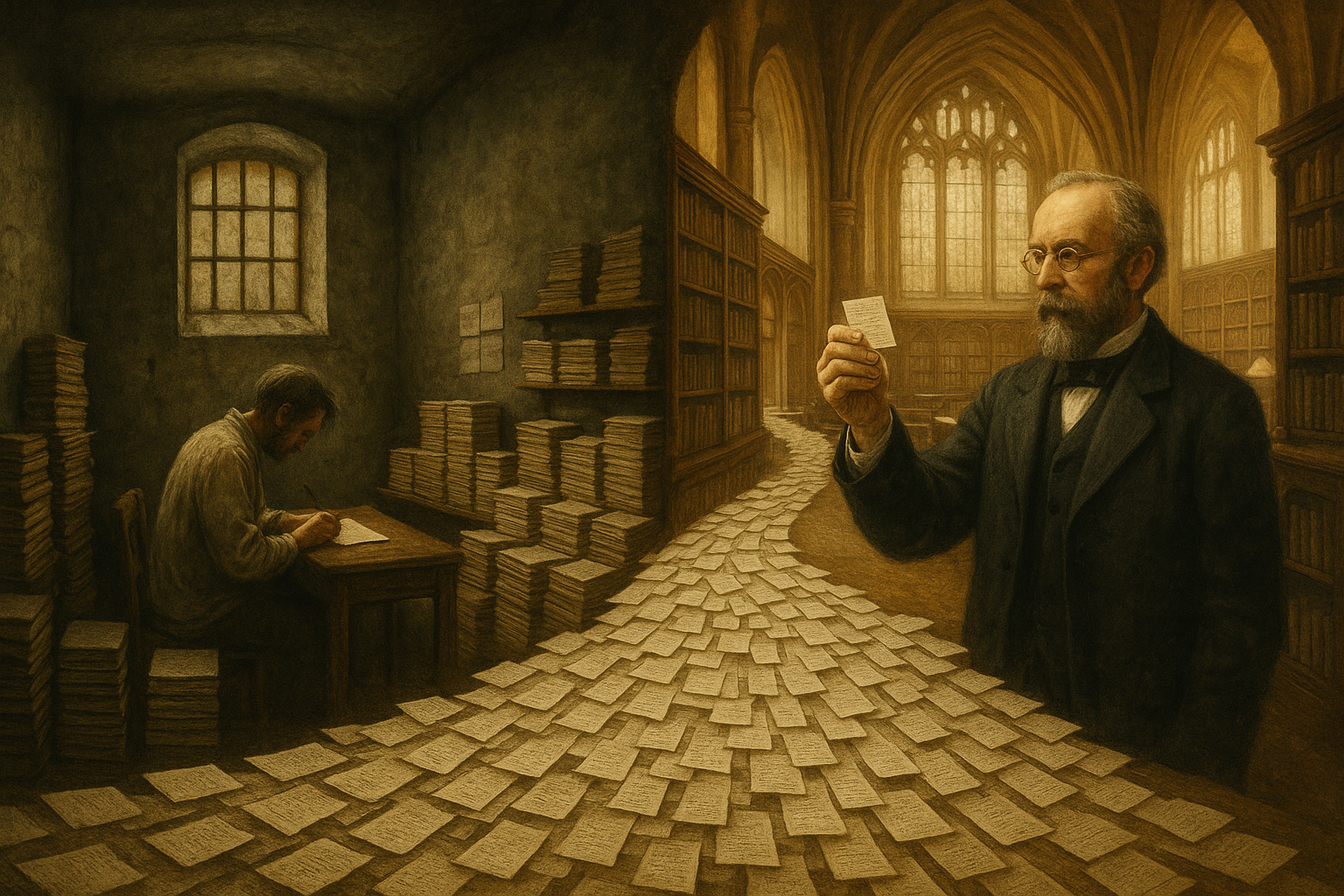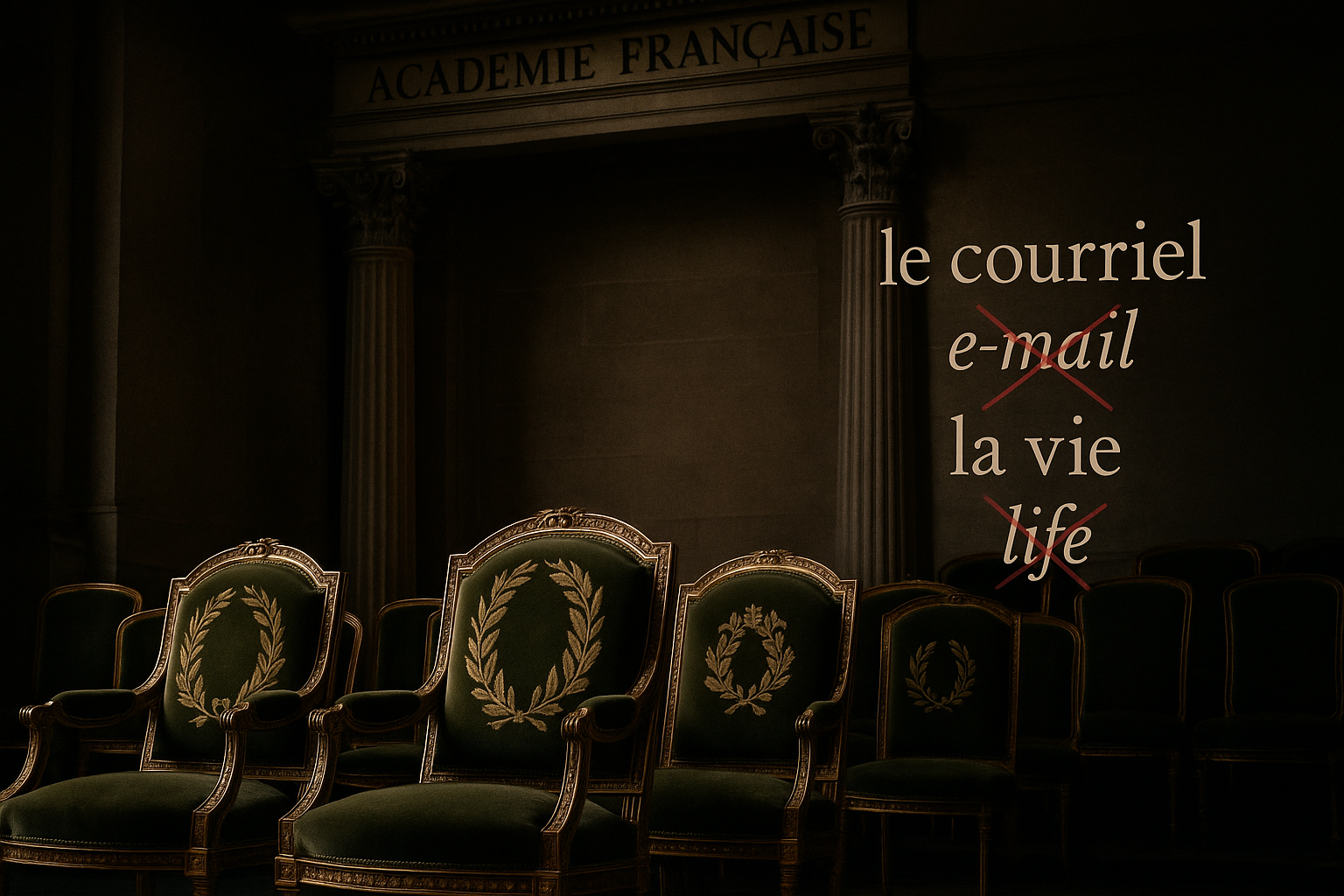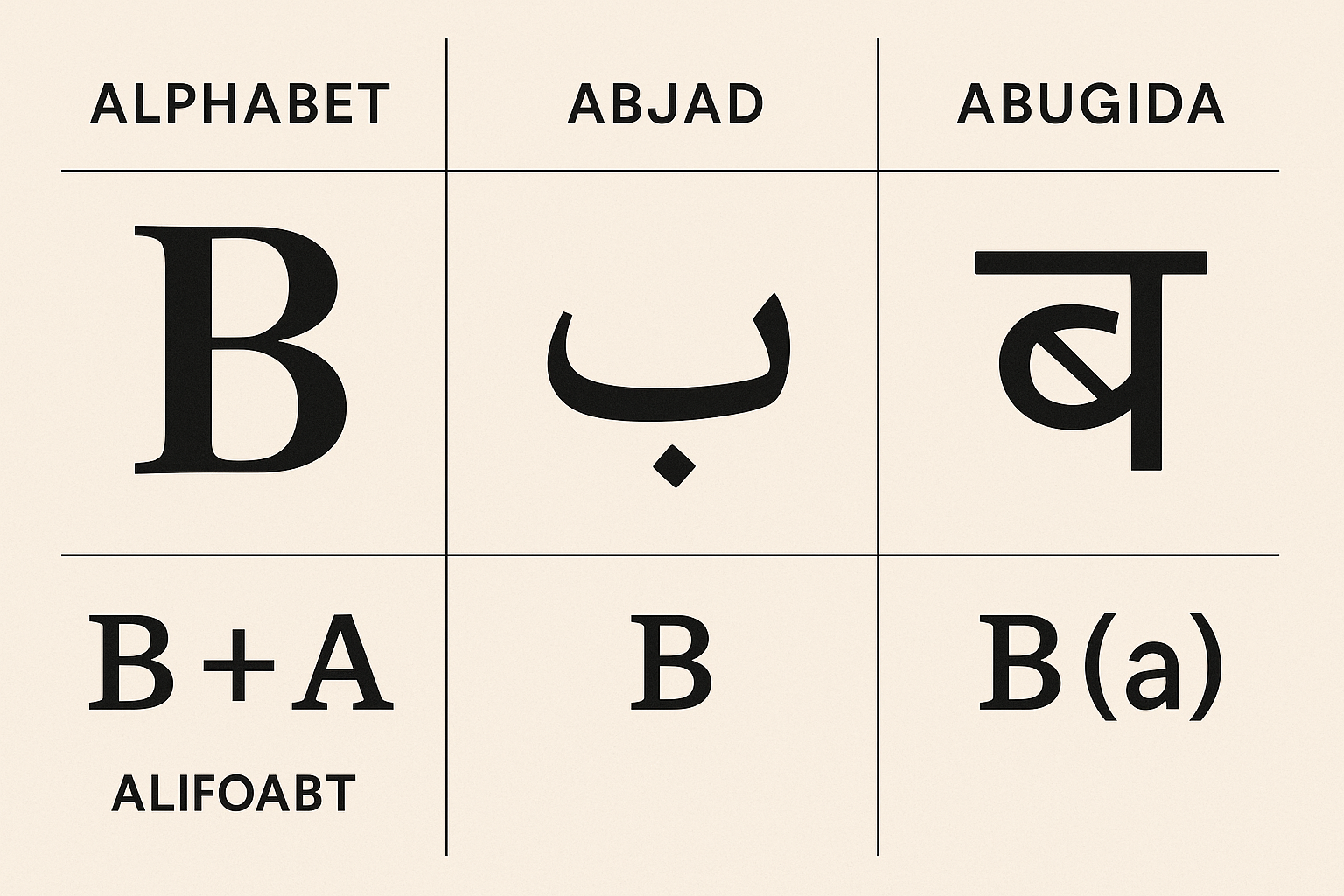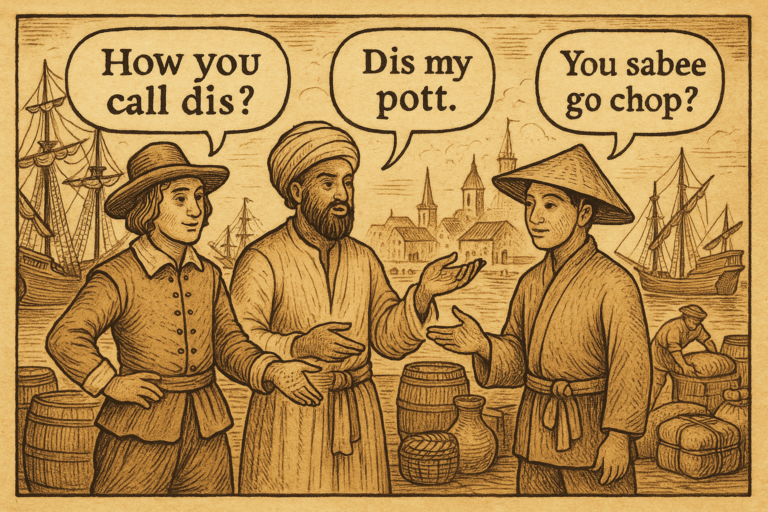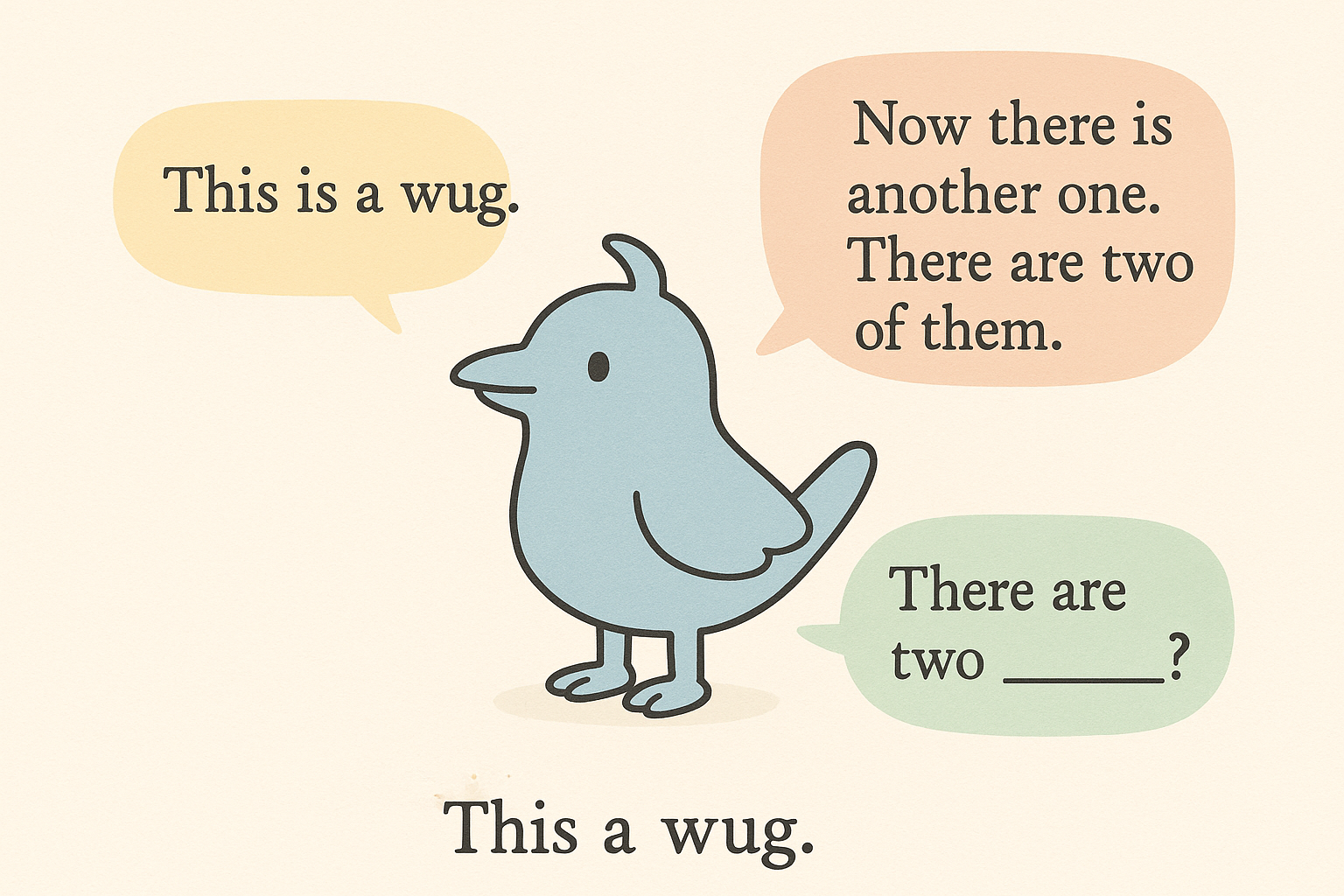In the late 19th century, within the hallowed, book-lined halls of Oxford University, a project of almost unimaginable ambition was underway. Scholars, led by the formidable lexicographer James Murray, were attempting to catalogue every single word in the English language, tracing its history, evolution, and every nuance of its meaning. This was the birth of the Oxford English Dictionary (OED), a monument to language that would take over 70 years to complete. To achieve this, Murray sent out a call across the English-speaking world for volunteers to read books and send in quotations illustrating how words were used. Help poured in from clergymen, academics, and amateur enthusiasts. But the most prolific, precise, and brilliant of them all was a man who never set foot in Oxford. His name was Dr. William Chester Minor, and he was an inmate at the Broadmoor Asylum for the Criminally Insane.
The Grand Ambition of a Historical Dictionary
Before we delve into the life of Dr. Minor, it’s crucial to understand what made the OED so revolutionary. It wasn’t just a dictionary; it was a biography of the English language. The goal of the Philological Society, which initiated the project, was to create a dictionary “on historical principles.” This meant that for every word, the editors wanted to show:
- When it first appeared in print.
- How its spelling and meaning changed over the centuries.
- Its moment of obsolescence, if it fell out of use.
To do this, they needed evidence. Mountains of it. This evidence came in the form of quotations written on small paper “slips.” Each slip had to feature the word, the sentence it was used in, and a precise citation: book title, author, year, and page number. James Murray and his team built a massive workshop called the “Scriptorium” filled with thousands of pigeonholes to sort these millions of incoming slips. It was a Herculean task of information management in a pre-digital age, and it relied entirely on the diligence of its volunteer army.
A Civil War Surgeon’s Descent into Madness
Thousands of miles away from Oxford, and a world away in experience, was William Chester Minor. Born in Connecticut in 1834, Minor was a Yale-educated army surgeon who served with distinction during the American Civil War. He witnessed the horrors of the battlefield firsthand, treating grievous injuries at the Battle of the Wilderness, a conflict notorious for its brutal carnage. His duties also included a moment that would haunt him for the rest of his life: being forced to brand a young Irish deserter on the cheek with the letter ‘D’.
The trauma of the war, coupled with this specific act, shattered Minor’s psyche. He developed severe paranoia, believing he was being tormented nightly by Irishmen seeking revenge. Seeking a change of scenery and a peaceful retirement, he moved to London in 1871. But his demons followed him. In the early hours of February 17, 1872, in a fit of paranoid delusion, he chased a man he believed was an intruder out into the street and shot him dead. The victim was George Merrett, a local brewery worker on his way to an early shift, a man completely unknown to Minor. Deemed criminally insane, Minor was committed to the newly built Broadmoor Asylum.
From Asylum Cell to Lexicographical Powerhouse
At Broadmoor, Minor’s story takes its extraordinary turn. Thanks to his US Army pension, he was granted privileges denied to other inmates. He was given two adjoining cells, which he quickly transformed into a magnificent private library and study. Surrounded by rare and antique books he ordered from London booksellers, he needed a project to occupy his brilliant but fractured mind.
Somehow, a copy of James Murray’s appeal for OED volunteers found its way to him. For Minor, it was a lifeline. Here was a task that demanded immense focus, intellectual rigor, and access to historical texts—three things he possessed in abundance. He devised a system of breathtaking efficiency. Instead of reading books in search of words the OED needed, he read his books first and created a personal index for each one, listing thousands of notable words and their page numbers. When the OED editors sent out lists of words for which they needed quotations, Minor could simply consult his own indexes. He could often mail back dozens of perfect, pre-18th-century citations within a day or two.
His contributions were invaluable. He had a particular knack for finding the earliest known uses of words, the holy grail for Murray’s team. His slips were models of clarity and precision, far superior to those of the average volunteer. For words like art, buckwheat, and dust, he provided a wealth of historical context that shaped their entries.
For example, a typical submission from Minor might look something like this on its slip:
colic, 1615, Helkiah Crooke, Mikrokosmographia, p. 278, “To appease the paine of the Collicke.”
He was, in effect, running a one-man quotation factory from inside an asylum, becoming one of the most important figures in the dictionary’s history.
The Editor Meets the Inmate
For nearly two decades, James Murray corresponded with this mysterious Dr. W.C. Minor of “Crowthorne, Berkshire” (Broadmoor’s address). He assumed Minor was a country doctor with a passion for literature and a great deal of leisure time. The quality and volume of his work were so high that Murray singled him out for special thanks in the preface to the OED’s first volume.
The truth was only revealed when a visiting London bookseller mentioned Minor’s location, leading to the dictionary’s officials eventually learning where their star contributor resided. In January 1891, a stunned and deeply curious James Murray traveled to Broadmoor. There, in a book-lined cell, the great editor of the Oxford English Dictionary finally met his most brilliant volunteer.
The meeting was not one of shock or judgment, but of profound mutual respect. Murray saw not a murderer, but a fellow scholar—a wounded, tragic genius who had found salvation in the ordered world of words. A deep friendship blossomed between the two men. Murray became a regular visitor to Broadmoor, discussing etymology and providing Minor with a vital connection to the outside world and the great project that gave him purpose.
A Legacy Written in Ink
W.C. Minor contributed thousands of quotations to the OED over more than twenty years. His work helped lay the very foundation of what is still considered the definitive record of the English language. His story is a poignant testament to the complexities of the human mind—a mind that could simultaneously harbor terrifying delusions and perform acts of immense intellectual clarity.
It reminds us that scholarship is not confined to ivory towers and that genius can flourish in the most unlikely and desolate of places. The surgeon who took a life in a moment of madness spent the rest of his own life giving new life to the words that connect us all, building a cathedral of language from the confines of his cell.
